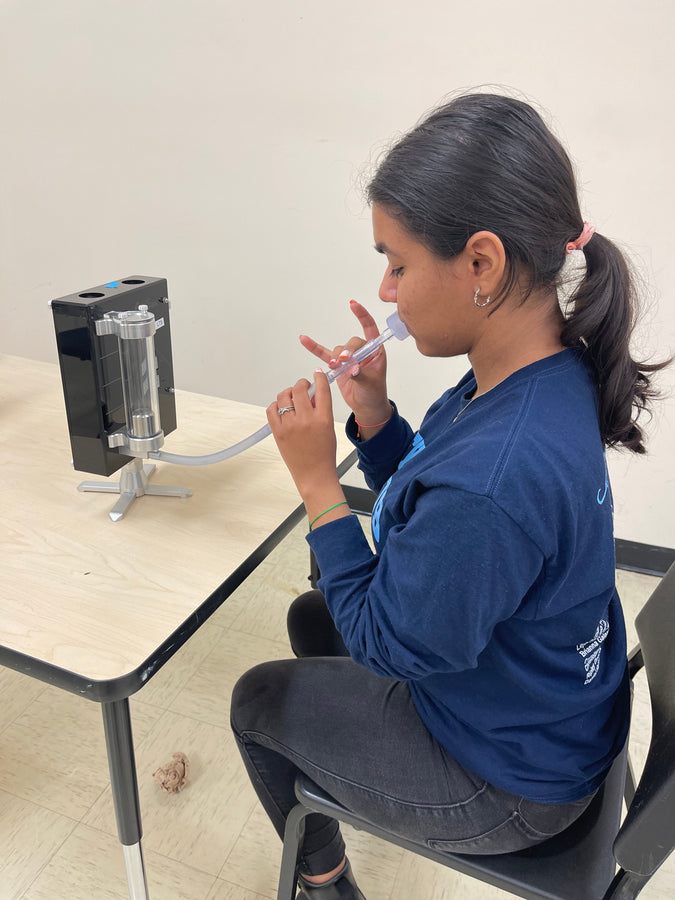When we think of musicians perfecting their craft, we often picture them honing their technical skills or mastering their instruments. However, there's another crucial aspect of musicianship that often goes unnoticed but is equally, if not more, important: the breath. The art of lung training for musicians is a game-changer that can enhance not only their performance but also their overall well-being.
The Musical Breath
Music, in its essence, is a rhythmic flow of sound, and breath is the life force that fuels it. From vocalists belting out powerful notes to woodwind players creating melodic magic, the lungs play a pivotal role in shaping musical expression. It's no surprise that musicians who have honed their lung capacity and control often stand out as exceptional performers.
Understanding Lung Training
Lung training for musicians goes beyond simple inhalation and exhalation; it is a comprehensive process that combines physical conditioning, mental focus, and breath control. Here's a breakdown of its components:

Physical Conditioning: Like athletes, musicians need to condition their bodies, especially their respiratory muscles, to perform optimally. Regular aerobic exercise, such as jogging or swimming, can increase lung capacity and improve overall stamina. Strength training exercises like planks and yoga can also help develop core muscles, essential for breath support.
Breath Control: Musicians need precise control over their breath to create nuanced dynamics and sustained notes. Learning to regulate the speed, depth, and force of inhalation and exhalation is essential. This control can be cultivated through techniques like diaphragmatic breathing, where the diaphragm, rather than the chest, is the primary muscle used for breathing.
Mental Focus: Musicians often perform in high-pressure situations, and maintaining mental composure is crucial. Meditation and mindfulness practices can help musicians stay centered, reduce anxiety, and optimize their breath management during performances.
Benefits of Lung Training for Musicians
Enhanced Musical Expression: Improved lung capacity and control allow musicians to explore a wider range of dynamics and sustain notes effortlessly, resulting in more expressive performances.
Increased Stamina: Musicians who invest in lung training can perform for longer durations without fatigue, perfect for lengthy concerts or recording sessions.
Reduced Performance Anxiety: Mental focus and mindfulness practices help musicians stay calm under pressure, reducing stage fright and enhancing overall confidence.
Improved Vocal Health: For vocalists, lung training can lead to better vocal health by reducing strain on the vocal cords and promoting proper breath support.
Overall Well-being: Lung training not only benefits musicians in their professional lives but also contributes to their general health and well-being, promoting better lung health and overall vitality.
The Connection between Breath and Music
Music and breath have an intimate relationship. Musicians use their breath to control the flow of notes, sustain melodies, and convey emotions through their instrument or voice. Whether you're a vocalist, wind instrument player, or even a percussionist, your breath is your most vital tool.
For vocalists, the connection is obvious. The quality and control of a singer's voice are directly linked to their lung capacity and breath control. For wind instrumentalists like saxophonists or flutists, breath control determines the clarity and precision of each note. Even percussionists benefit from proper lung training as it enhances their stamina and ability to maintain rhythm for extended periods.
Why Lung Training Matters
Sustained Performances: Musicians often have to play or sing for extended periods during rehearsals and performances. Proper lung training allows them to maintain consistent sound quality and pitch throughout, avoiding the pitfalls of fatigue.
Dynamic Expression: Music is not just about hitting the right notes; it's also about conveying emotions. Musicians with well-trained lungs can infuse their performances with dynamic changes in volume, tempo, and articulation, enhancing their expressiveness.
Breath Control: Musicians with better breath control can execute intricate musical passages with ease. They can create those long, breathtaking phrases that captivate audiences and leave them spellbound.
Stress Management: Performing live can be nerve-wracking. Musicians with good lung training are better equipped to manage performance anxiety through controlled breathing techniques, ensuring a more confident and poised stage presence.
Lung Training Techniques for Musicians
Diaphragmatic Breathing: This technique involves using the diaphragm instead of shallow chest breathing. It allows musicians to take in more air and control the flow of breath more effectively. Practice deep diaphragmatic breaths daily to build strength and control.
Breath Awareness Exercises: Musicians can benefit from exercises that focus on awareness of their breath. This can include mindfulness meditation or yoga, which helps them connect with their breath and stay grounded during performances.
Breath Control Exercises: Musicians can work on specific exercises that challenge breath control. For instance, playing long sustained notes or phrases on their instrument or singing without a break can improve endurance and control.
Cardiovascular Conditioning: Regular aerobic exercise like jogging or swimming can improve lung capacity and overall cardiovascular health, which directly impacts a musician's ability to sustain their breath.
Breathing Techniques for Stress Management: Learning techniques like deep breathing, box breathing, or the 4-7-8 method can help musicians manage performance anxiety and stay calm under pressure.
For More Info:-
breathing exercises for musicians







